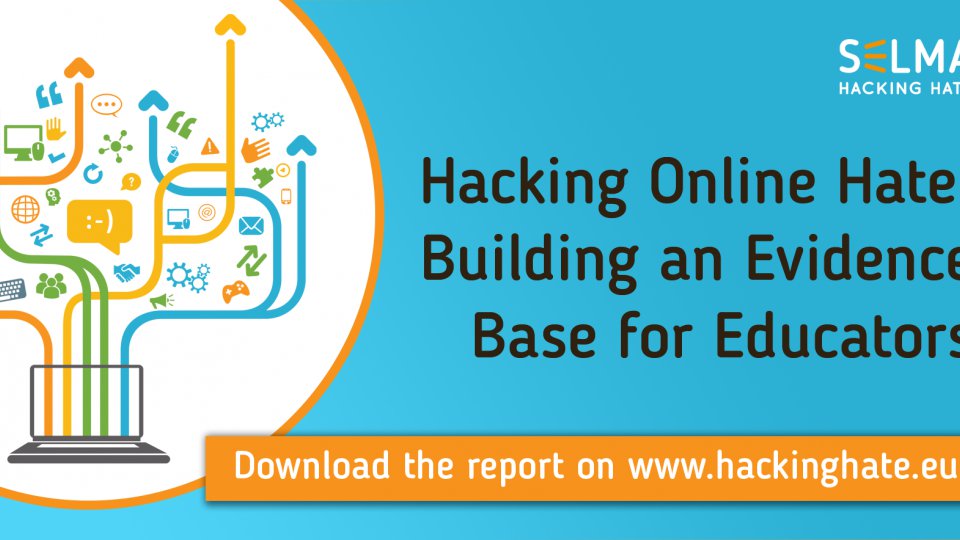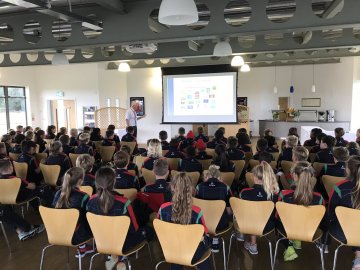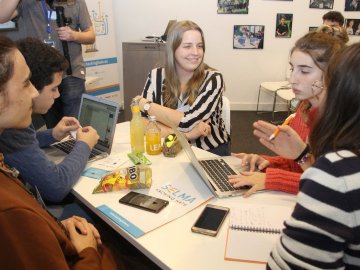Online hate speech is a growing problem, with abusive comments from peers one of the key causes of upset online for young people.
This is why SWGfL is working alongside partners to help deliver SELMA, a two year project that aims to tackle the problem of online hate speech by promoting mutual awareness, tolerance, and respect.
Read more about SELMA by clicking here.
Hacking Online Hate: Building an Evidence Base for Educators
The SELMA project has published Hacking Online Hate: Building an Evidence Base for Educators, a research report that synthesises the main findings of comprehensive research aiming to achieve a holistic understanding of the online hate speech phenomenon. The research, carried out by professionals with a variety of academic and organisation backgrounds, comprises three interrelated components enriching each other: a literature review, a series of qualitative focus groups and an online quantitative survey.
Literature review
The literature review tries to capture the full complexity of the online hate speech phenomenon. Despite ongoing research and policy making efforts across Europe, there does not exist a universally accepted online hate speech definition. This research recognises the existing diversity of perspectives, but equally tries to end up with a comprehensive definition after analysing in further depth a number of key online hate speech features and dimensions, while providing insight into its causes and consequences.
Moreover, it gives a more anecdotal account of how online hate speech is defined and which relevant policies and legislation are in place in each SELMA partner country (Denmark, Germany, Greece and the United Kingdom).
Focus groups
The key findings emerging from a series of qualitative focus groups, carried out with 11-16 years-old teens, provide a more descriptive account of the perspectives and experiences of children and young people with regard to online hate speech. They are familiar with the topic of hate speech and are able to relate it to their personal online media experiences. Yet, most participants failed to systematically articulate what hate speech is, and how it transpires in the current social media landscape.
Most respondents also seemed to grasp some of the possible consequences online hate speech may have, both at individual and societal level. Nevertheless, as the young people argue themselves, apart from regulation and adequate monitoring and reporting procedures, awareness raising and education seem essential.
Quantitative survey
The quantitative survey, developed to better understand teens and teachers’ experiences (two key SELMA target audiences), further complements the findings of the focus groups. Results confirm that online hate has become an inevitable part of young people´s everyday media experience. Nevertheless, one should not exaggerate the harmful impact it may have had on the individuals surveyed. If young people encounter it, it is mostly by accident. Meanwhile, only one in five indicated they had been targeted themselves.
While the knowledge and understanding young people have of online hate is fairly limited, teachers seem to have a somewhat better grasp of what online hate speech is about. Many of them, even feel confident to discuss the topic with students and their parents. Yet, when educational or awareness-raising programmes and activities need to be developed in their school, they lose some of this self-assurance.
The SELMA response
The report finalises assessing the role that policy makers and social media platforms play in teenager´s online media experience and calls for a more pro-active awareness and education effort of all stakeholders.
All these findings provide a theoretical and empirical backbone for the SELMA Toolkit, which will be made available on this website in the Spring of 2019. It will provide a large collection of principles, methods and activities that will enable multiple stakeholders to work on online hate speech with teenagers aged 11-16.






